
AI-Powered HRIS for high performing teams
Streamline HR processes, remove manual work, and gain actionable insights with the simplicity and ease of consumer software.








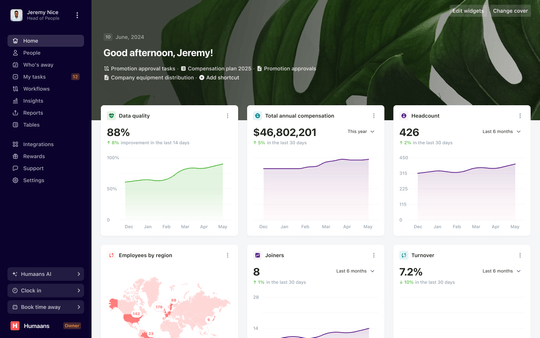
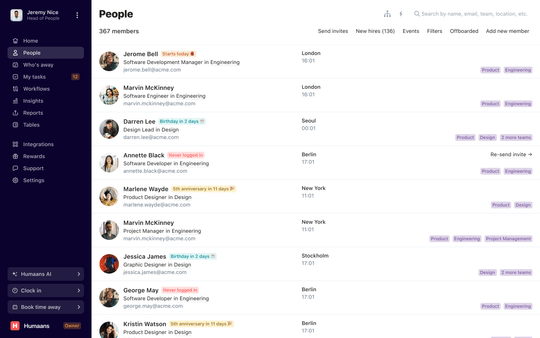
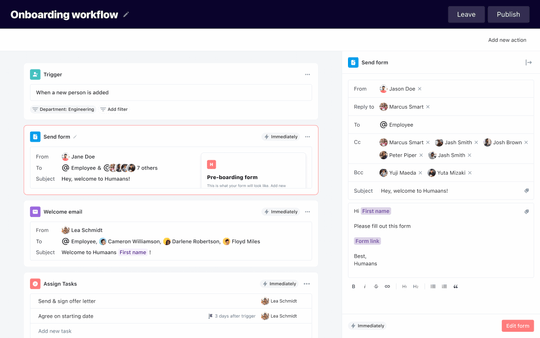
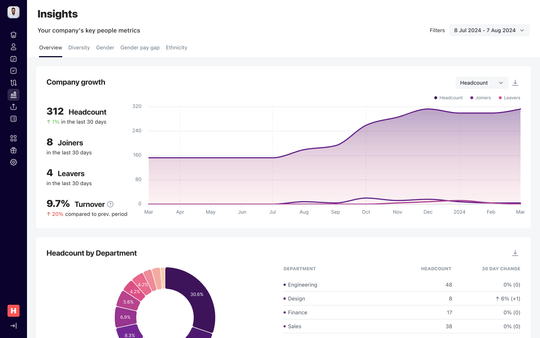
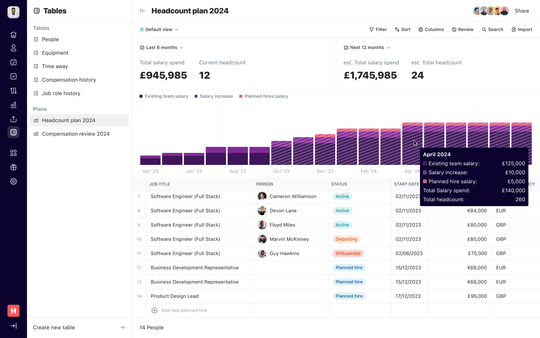
The source of truth for all your people data
Unlock the power of your company’s people data
Centralise and automate every stage of the employee lifecycle, empowering your team to make faster, more informed decisions that drive lasting impact.
Ask Humaans AI Companion
Empower your team with instant answers to queries using Humaans AI Companion. Designed with privacy in mind, it allows employees to quickly find information on policies, documents, and more. For HR admins, it streamlines the creation of documents and provides insights into workforce data – freeing up time for strategic initiatives.
Our company has 9 behaviours and skills we value. They are, Judgement, Communication, Impact, Curiosity, Innovation, Courage, Passion, Honesty and Selflessness.
Process automation
Automate onboarding, offboarding, compensation reviews, performance management and everything in between.
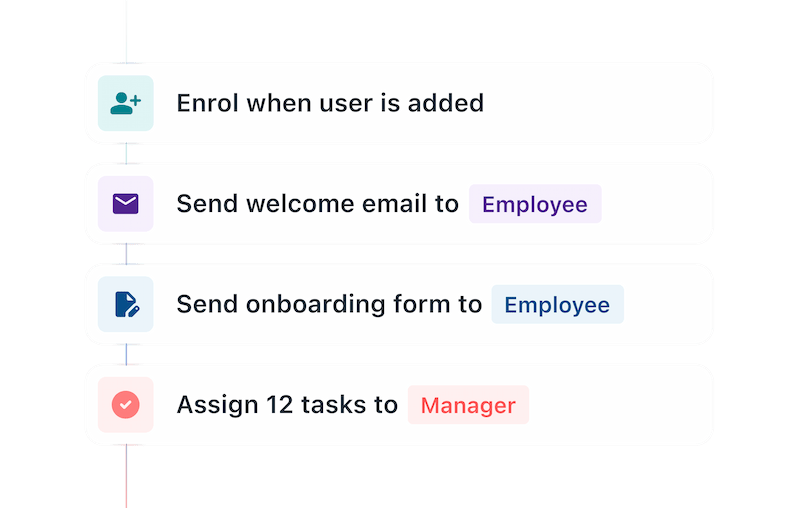
Insights & Reporting
Real-time access to turnover data, headcount changes, salary spend, absence, tenure, and much more.
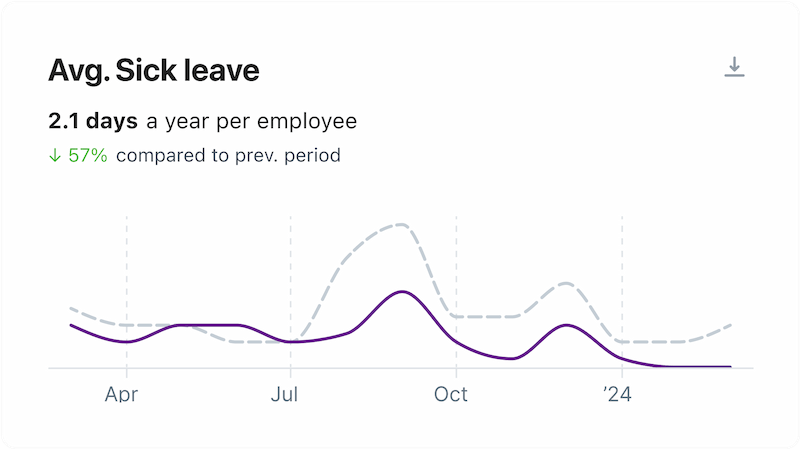
User experience
Provide a consumer-grade user experience that your team will love. Humaans combines powerful HR capabilities with an intuitive interface, making it easy for anyone to navigate.
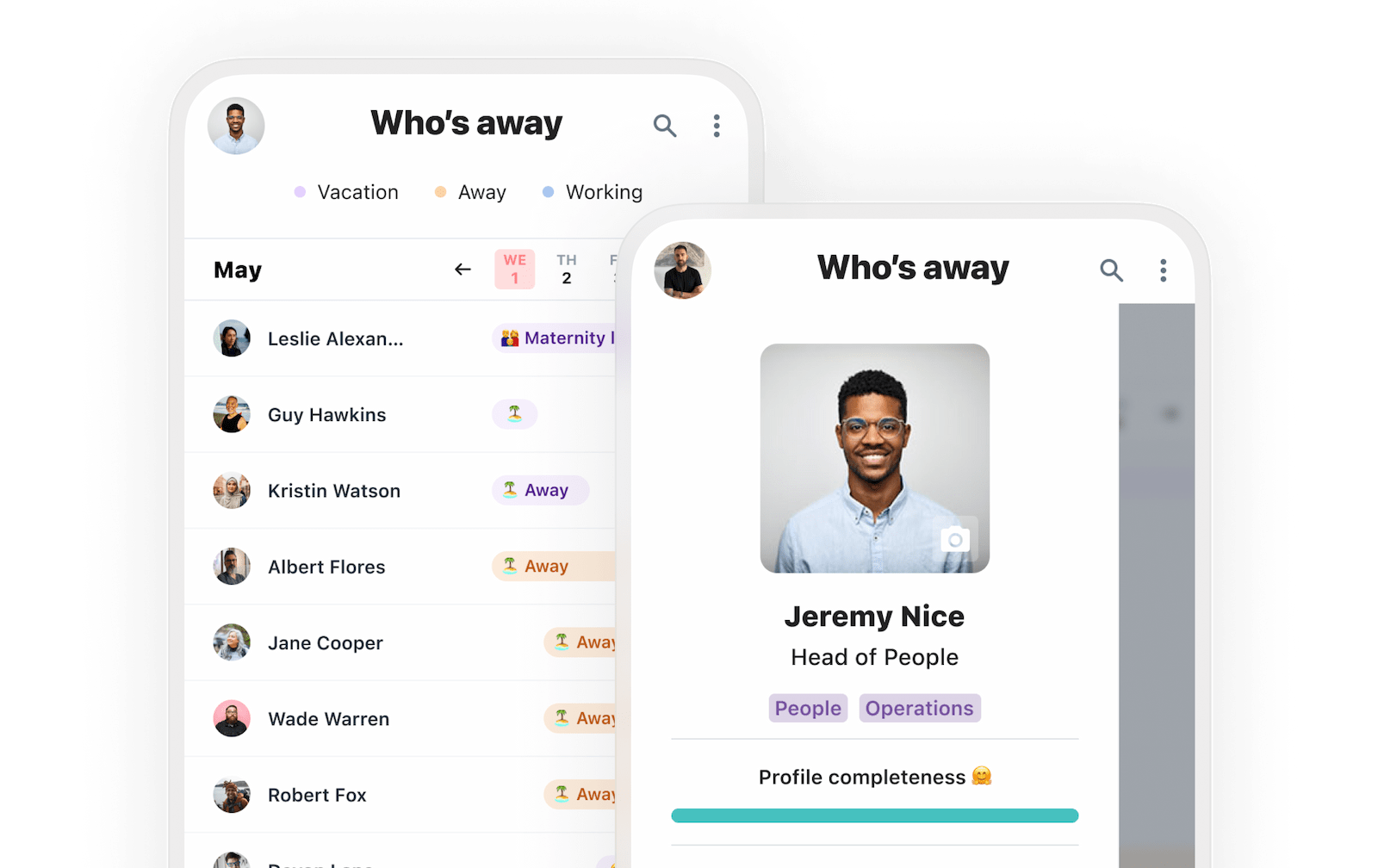
Dynamic Databases
Tailor Humaans to fit your company’s structure. Create and adapt data sets to ensure a smooth integration to power your people operations.

Team collaboration
Drive efficiency and boost your team's productivity with workflows designed to facilitate seamless collaboration.
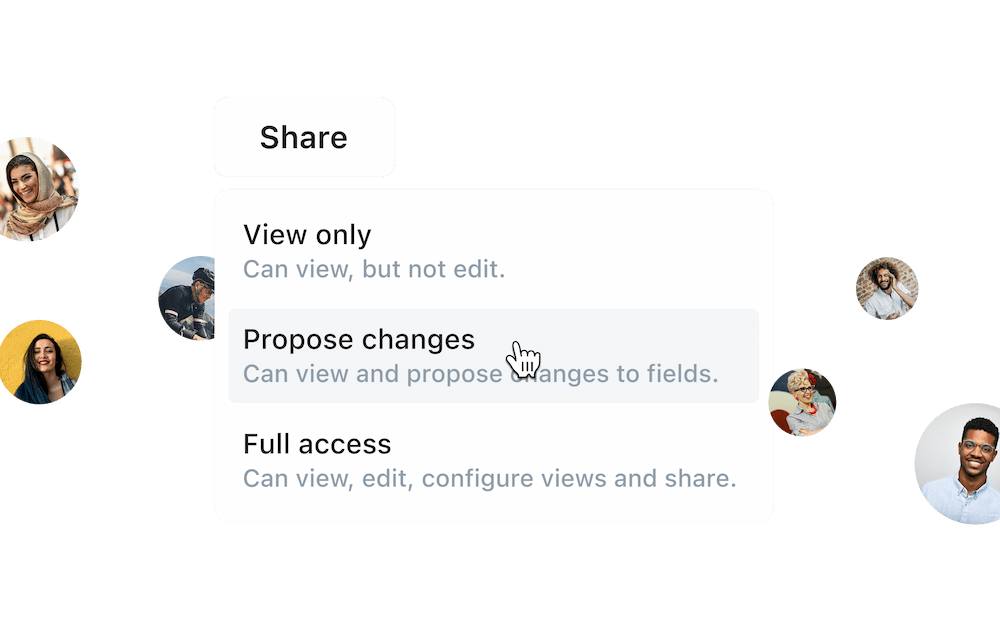
Real-time data views
Effortlessly update and manage large volumes of employee data without speadsheets. Save time and reduce errors by making changes across multiple records in a central view collaboratively, ensuring your HR data remains accurate and up-to-date.
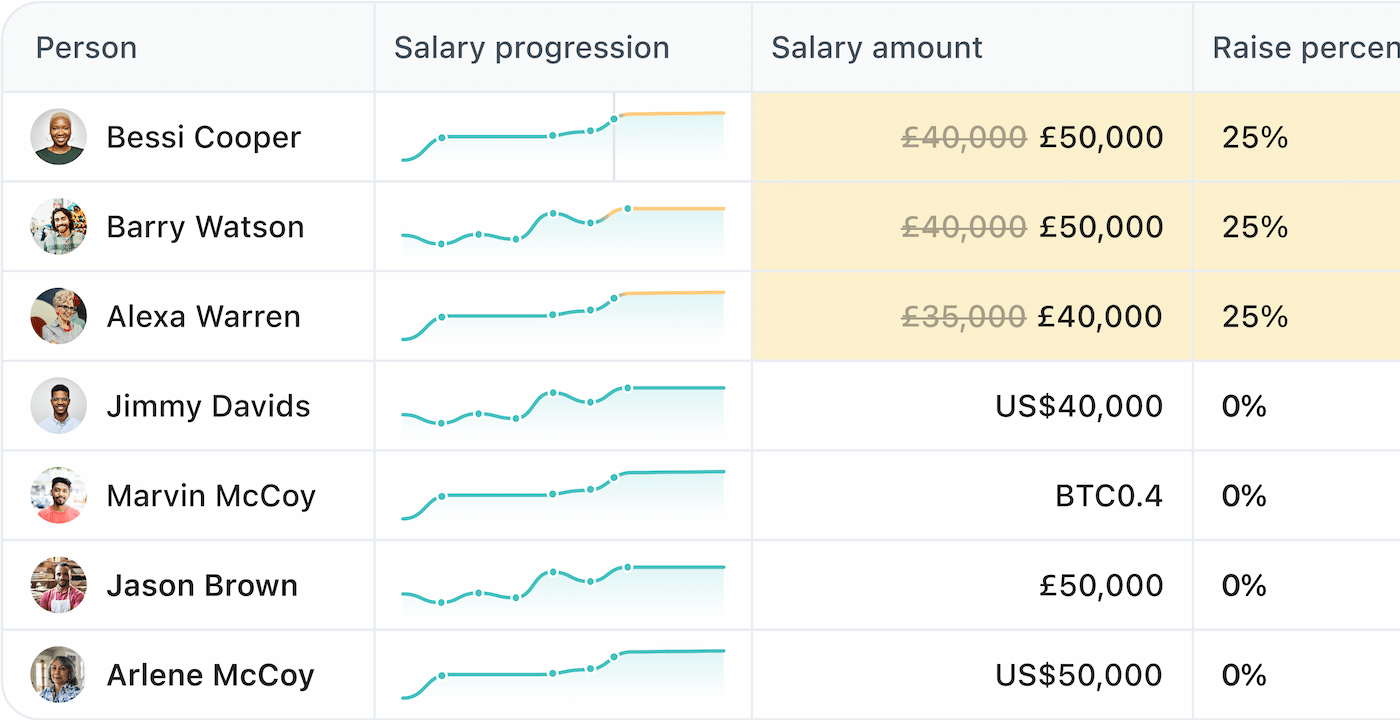
Trusted by industry leaders
Supporting growing companies and global category leaders
Humaans powers HR data management for globally distributed companies, adapting effortlessly to their diverse needs across every region.
“Having a Humaans account is as essential to us as having a Google Workspace account.”
Jessi DanyiSenior People Leader

“Humaans is a single source of truth that we know we can trust. It just works without our employees noticing it — it’s a testament to a great system.”
Rasmus Møller SørensenChief Experience Officer

“Humaans is far superior to any other HRIS I’ve used in terms of usability, functionality, and support.”
Gemma BianchiHead of People


Fully connected
Connect Humaans with your company’s tech stack
Seamlessly integrate Humaans with your existing tech stack through our robust API, webhooks and pre-built integrations, enabling smooth data flow and automated workflows that enhance operational efficiency.

Scale with Humaans
Built to grow with you
Humaans is designed to empower growing organisations to easily manage their data at scale with a secure and reliable platform. Get up and running smoothly with specialised support and custom configurations. Advanced admin controls and security features keep your data safe.
Enterprise-Level Security and Compliance
GDPR compliant, SOC 2 Type II and ISO 27001:2022 certified platform.
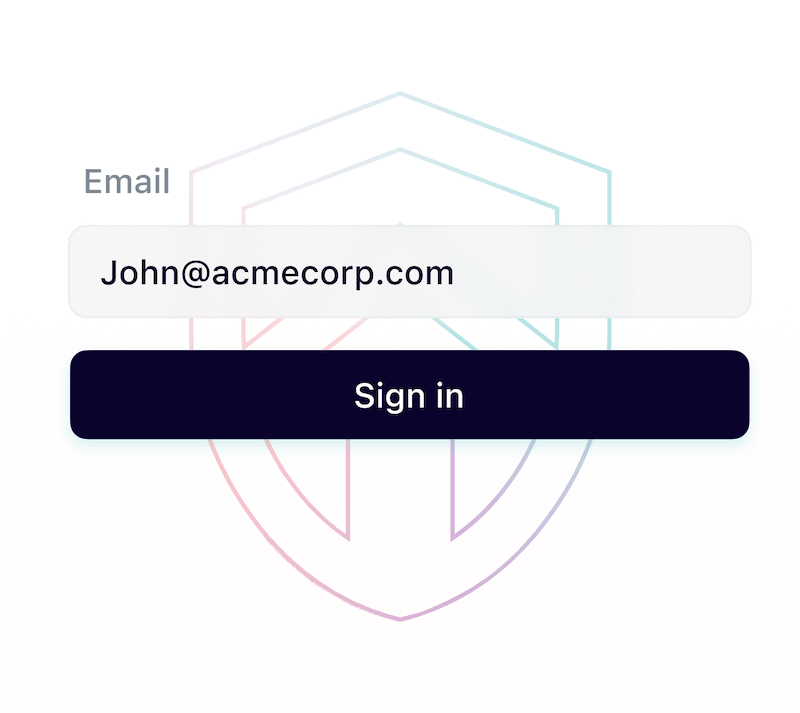
Dedicated Support and Implementation Services
Category leading helpful support, dedicated Customer Success Manager, technical set up help and on-going product value unlock.

Data Access & Permissions
Take full control of your data with precise permission settings for all data, documents and roles, and confidently track every change with our audit logs.
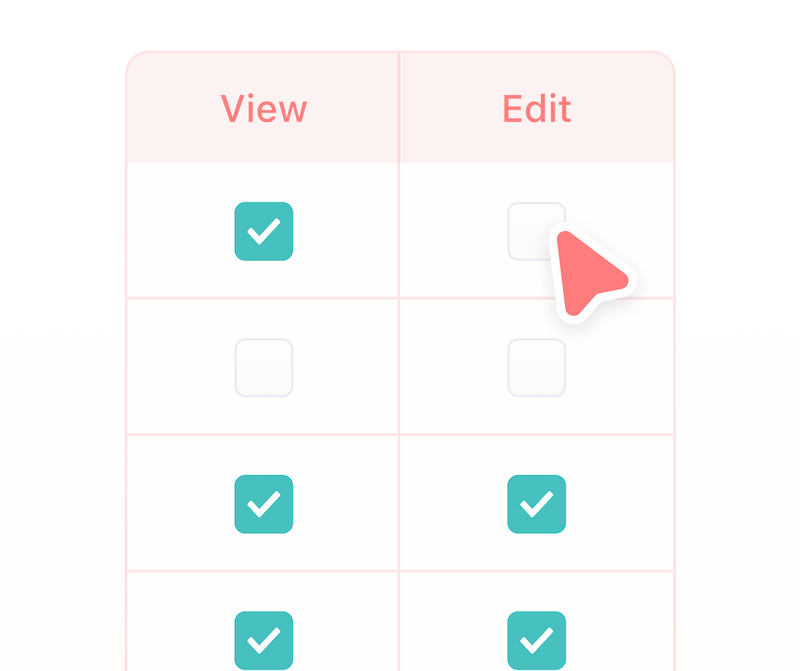
Migration made easy
Transition to Humaans from any providers with confidence. Our specialized implementation teams manage the entire process, ensuring a smooth, hassle-free migration so you can stay focused on your company’s success.
Tailored implementation
We work with you to create the perfect plan to implement and start unlocking value from Humaans quickly.
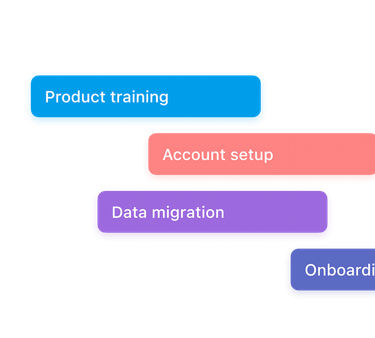
Fully managed data migration
Our Product Implementation team handles the data migration heavy lifting for a seamless transition.

With you every step of the way
Building strong relationships matters to us, so you can count on our support whenever you need it.
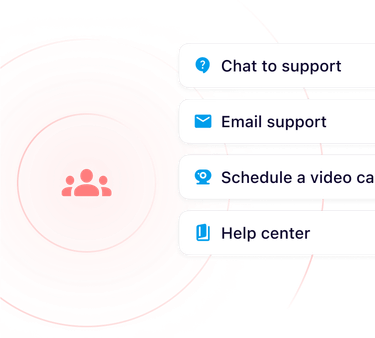
Your data is safe with us
Protecting your company's sensitive data and ensuring operational security are our top priorities. Our enterprise-grade platform is fully certified, continuously monitored, and rigorously tested.

Thought Leadership
Setting the Standard in HR & People Insights
We engage with progressive HR and People Leaders, tapping into a growing network of expertise. We provide valuable resources and insights to help HR operators and people leaders stay ahead and excel in their field.

